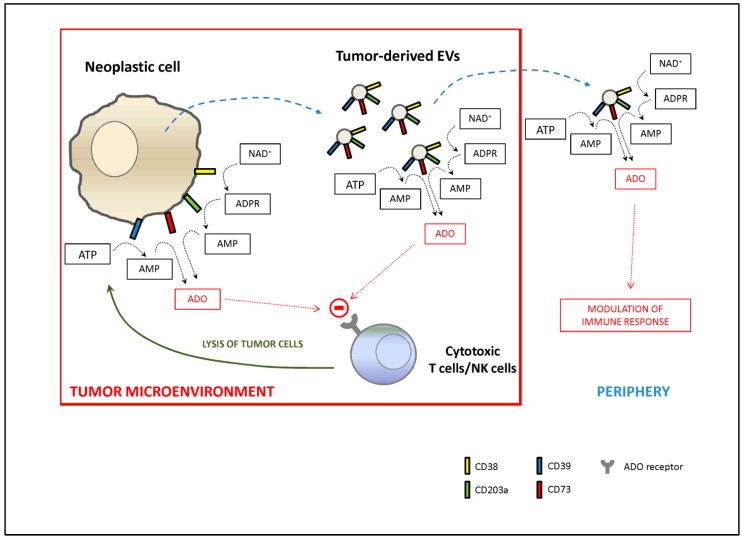Figure 1.
Generation and function of tumor-derived extracellular vesicles (EVs). CD38, CD39, CD203a and CD73 molecules are commonly expressed by several solid and hematological tumors. In addition, tumor cells are able to release EVs that may be endowed with the same adenosinergic ecto-enzymes. As result, both tumor cells and tumor-derived EVs are capable of generating of adenosine (ADO) starting from ATP (through the action of CD39 and CD73) or NAD+ (through the action of CD38, CD203a and CD73). ADO produced in the tumor microenvironment is able to interact with ADO receptors on T lymphocytes and NK cells, shutting down anti-tumor immune response. Moreover, tumor-derived EVs, upon distribution by circulatory stream, may vehicle peripheric effect, modulating immune response by cells expressing ADO receptors (T and B lymphocytes, NK cells and monocytes/macrophages).

